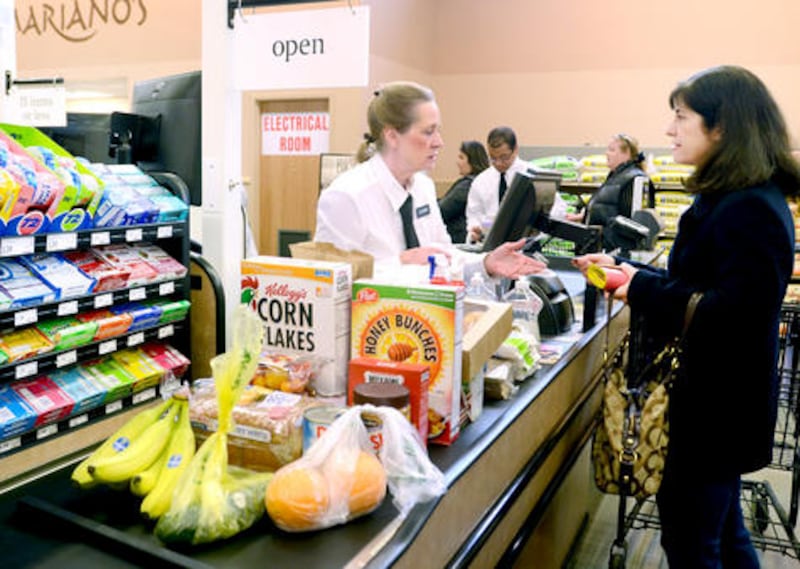Wheaton has joined a growing list of suburban towns enacting a municipal 1% percent sales tax on groceries to replace a state-imposed tax set to be repealed at the start of next year.
Illinois Gov. JB Pritzker last August signed into law a measure eliminating the tax on grocery items, but also granting municipalities the authority to implement their own.
“It’s nice for the governor to say he’s doing away with the tax,” Mayor Phil Suess said. However, the estimated loss of revenue from the elimination of the tax would cost the city anywhere from roughly $1.6 million to $2.2 million.
The city council unanimously passed a local grocery tax ordinance developed from a template prepared by the Illinois Municipal League, Wheaton City Manager Mike Dzugan said.
he ordinance “essentially maintains the status quo,” Suess said.
Among other DuPage County towns, Westmont also has approved a municipal grocery tax to take effect Jan. 1.
In Lombard, trustees are scheduled to vote on a proposed grocery tax ordinance on second reading at their April 17 meeting. The village’s finance and administration committee has recommended that the board approve it.
If the village did not implement a grocery tax, Lombard would lose approximately $1 million to $1.3 million in annual revenue, potentially leading to budget cuts and reduced services, according to an FAQ.
As a community that lacks home-rule powers, Lombard is “kind of limited in options in terms of recouping any of the lost revenue from that,” said Trustee Anthony Puccio, who will be sworn in as village president next month and ran unopposed in this month’s election.
“So I think based on that and our inability to take some of the other creative approaches that some of the home-rule communities have … I will be supporting this,” Puccio said last week.
Current Village President Keith Giagnorio said he hates taxes “as much as anybody else.”
But “it’s not a new tax, and it will affect our budget if it goes away,” he added.
The Illinois Department of Revenue will administer and collect the municipal grocery sales tax on behalf of municipalities that enact it, “ensuring a streamlined process for retailers,” the village’s FAQ states. Municipalities must pass an ordinance and submit it to the state by Oct. 1, so that it takes effect on Jan. 1, 2026.
In Westmont, the revenue source now brings in approximately $1 million a year, Finance Director Allen Altic told the village board in February.
“Citizens will not experience a difference in taxes with their grocery purchases when this transition occurs,” Altic said in a statement. “This mechanism simply authorizes municipalities to continue a tax that was already previously being collected.”
https://www.dailyherald.com/20250408/news/wheaton-oks-municipal-grocery-tax-as-lombard-other-towns-look-to-follow-suit/
